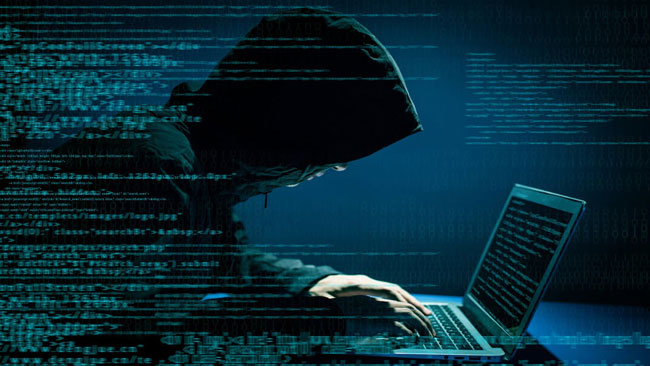We believe it is in the past few years that people became so concerned about computer safety and security — obviously due to the various number of digital attacks that we’ve seen in the period. Earlier, people used to believe that viruses were the only dangerous thing in the world. Then came the hackers, who found most exploits in software and started stealing data and demanding ransom. And, we must not forget to mention ransomware, which made it to headlines in the past year. Not only did ransomware affect a huge number of devices but it also retrieved a huge amount of money from victims. It all comes down to the notion that you’re now somewhat compelled to take some serious precautions when it comes to computer safety.
While there are multiple ways to retrieve your data and device post-attack, let’s stick to the point that prevention has better effects than cure. In this article, however, we have curated 10 ways to keep your computer safe and secure from viruses and hackers. If you want to learn how to protect your phone, start by searching for the best iPhone antivirus apps. Please keep in mind that these ways alone are not going to help you out. If you can work according to these steps — at least the major ones —, you have a better chance at staying away from hackers and the other types of attackers. Shall we start?
#1. Antivirus and Anti-Malware Security
There was a time when a standard antivirus program was enough for your security. But, just anti-virus suite is not enough nowadays, because the world of threats has gone wild. If you want ideal security for your PC or Mac, we recommend running the dual setup of antimalware and antivirus security. So, even if your antivirus program fails to detect a particular type of malware, the anti-malware suite will help you for sure.
#2. Care When you Share
Just keep in mind that data is so important than you think. On the surface, your internet banking username and password are just two bunches of characters but they mean so much. Similarly, every bit of data that you share has some significance in the long run. So, in order to make sure that your data is not being misused, it is recommended that you know where you share things. For starters, whenever you share something like a password or banking details, make sure that the page is HTTPS.
#3. Enable Firewall
A firewall is something that can protect your computer from unwanted and unsafe connections, at the basic level. There are a few other things a firewall can do, depending on the one you’re using. So, it doesn’t matter which type of firewall you are using, the Firewall must be enabled in your computer. This is a great way to keep your computer away from digital attacks from most instances. On the basic level, you can keep yourself safe while connected to a public network.
#4. Keep Things Updated
As far as your computer safety and security is concerned, you should keep everything updated. By the term ‘everything’, we mean your OS and Software mainly. This will make sure that your PC is safe from at least a huge number of identified threats. In case you forgot, most developers release patches and updates if there is a recognized threat or loophole. By installing OS-level updates — Windows Update, for instance — and software-level updates, you can prevent many viruses and hacking attacks.
#5. Care What you Open
Whenever you open something from external sources, you should be careful. Here, external sources refer to two things in general — removable media and the Internet. To put in simple words, you should know what you are downloading and opening from the internet. Depending on the content you want, try to choose an authentic source. Similarly, when it comes to accessing content from USB drives and other sources, do make sure you have scanned the drive before opening.
#6. Pay Attention to your Browser
Browser-level attacks often happen when you are running an outdated and insecure version of a browser. It may also be caused by some extension you have installed. For instance, certain malicious extensions are known for browser-hijacking and phishing. In other words, if you have some such extensions installed in your computer, you are likely to be subjected to a threat. So, if you ask us, we’d recommend running a clean version of the browser. A better option is to use a secure browser for payments and other sensitive tasks.
#7. Use a Password Manager
You must not depend on your memory or sample paper for keeping your passwords safe. It means that you are likely to lose the passwords to hackers in no time. So, one of the effective ways to stay safe is to use one password manager suite. Make sure that you use an encrypted program, which keeps your passwords in an impressive manner. Also, most of these programs have auto-login features, which makes it easy to get a log in to certain websites.
#8. Use Genuine Software
This is perhaps the buzzword when it comes to computer safety and security, due to multiple reasons. First of all, genuine software means that you are paying something for the product you use. On the other hand, it sounds right to pay nothing and keep using the software. In most cases, pirated software consists of malicious codes and built-in hardware. They may not directly cause an attack, but surely will create a big loophole for other hackers and viruses.
#9. Regularly Scan your Computer
This step can be a good habit to keep your computer safe and secure. There is no point in installing both the antivirus and anti-malware software if you don’t use them properly. You should also find time to scan your PC regularly, at least once in a while. If you have enough time and resources, you must also think of doing a Deep Scan instead of a regular scan. Also, as we said earlier, scan all the devices before you open the drive to access files.
#10. Data Backup
This is not technically a way to protect your computer from threats. However, this simple step of security is capable of helping you under attacked circumstances. Make sure that you have backed up all the necessary information, either manually or using a piece of backup software. If you cannot afford that, you can also do something like creating a System Restore Point in Windows. This is a kind of time-freeze that you can always roll back to if anything happens.
Absolute Security and Safety has become a myth in the world of computer safety and security and no software can offer 100% protection. That having said, the abovementioned techniques and tips can help you stay away from the main types of threats in the world. So, make sure that you select the best ones and follow them.




Leave a comment
Have something to say about this article? Add your comment and start the discussion.